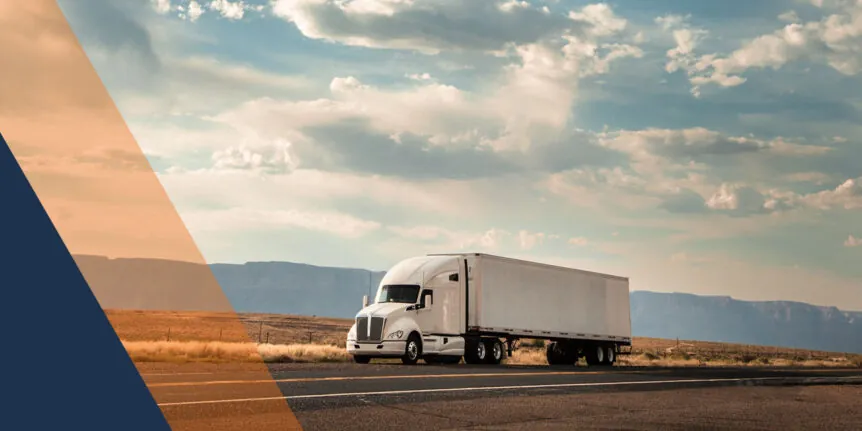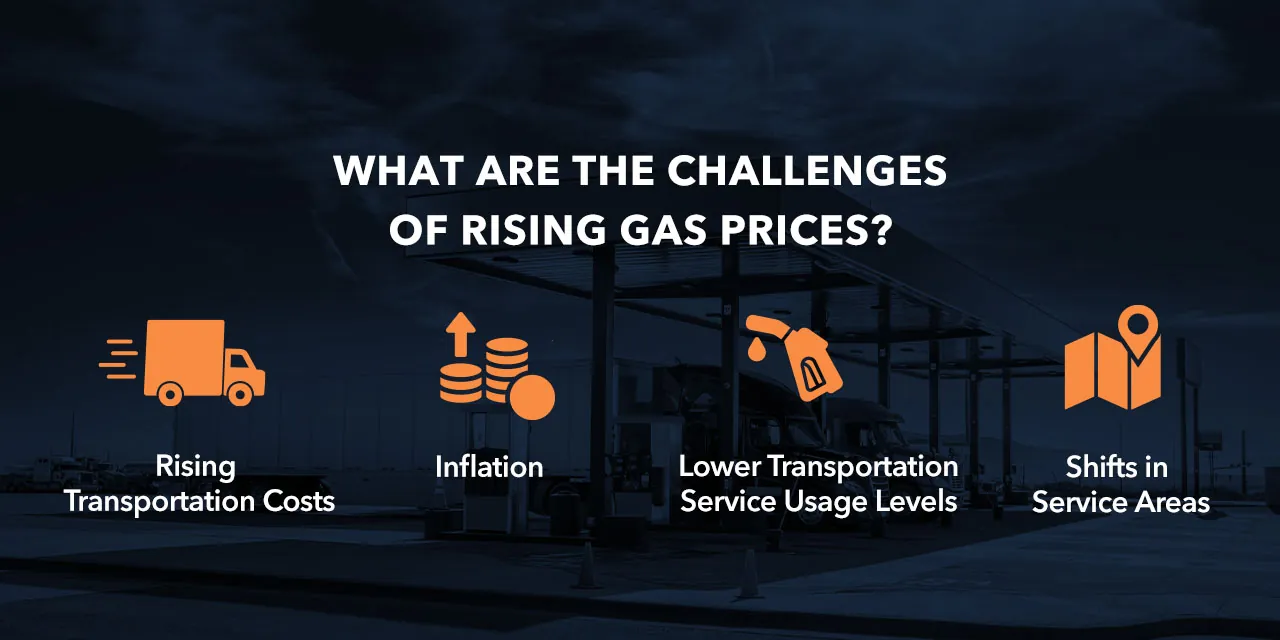With gas prices reaching an all-time high in many locations, you want to know how this change will affect your business. The delivery industry is especially vulnerable to fluctuations in fuel costs. So, how do rising gas prices influence business-to-business (B2B) delivery services?
Gas prices impact product delivery services because higher fuel costs drive up shipping expenses. The details are even more complex, and as your company adapts, it’s vital to know how to respond effectively. Keep reading to learn about the impact of fuel costs on the logistics of your business.
Do Gas Prices Impact the Timeline for Delivery?
Considering gas prices impact logistics, they will inevitably affect delivery times.
The effect of gas prices on logistics and shipping costs is noticeable. Still, as far as timelines for shipping estimates go, you have the same options if customers are willing to pay the extra fee for delivery. With the increased costs of fuel, expect more customers to use economical shipping options to save money. Also, expect certain consumers to pay more if they can get products more quickly.
Your company might benefit from extending timelines to save on delivery. The logistics support provided by your partners or carriers is prone to change as gas prices also affect them. If you want to lower your shipping costs, opting for slower delivery methods is one possible solution.
Allowing for slower time estimates has a potential drawback. Some customers pay a premium to receive a product quickly. If they are unable to get your product in the time range they want, they will look elsewhere for a similar product with a faster delivery option.
Reduced gas prices will have the opposite effect on delivery times. Your company will likely save more on shipping expenses, allowing you to channel your efforts into faster delivery options and providing these timely services at a lower cost. Low gas prices benefit logistic firms since customers appreciate fast delivery without the steep charges associated with premium timelines.
What Are the Challenges of Rising Gas Prices?
As gas prices rise, you can expect the following factors to create new challenges for your company:
1. Rising Transportation Costs
The cost of transporting freight will continue to increase as fuel prices rise. By increasing the price of transportation, carriers can pass the burden down to consumers to avoid taking losses. If the freight carrier has to spend more to move the items, the shipper will be charged more to transport the goods. This phenomenon means fuel costs affect the entire industry.
2. Inflation
Since fuel costs impact every aspect of the transportation industry, expect product prices to rise as well. As the economy fluctuates, you might need to charge slightly more for your product to receive the same profit. Shipping certain items — for example, temperature-sensitive products requiring refrigeration — will cost more than others.
3. Lower Transportation Service Usage Levels
If fuel costs rise significantly over a consistent period, companies across many industries will have to work on maintaining their profits. One way to do this is by cutting services or switching to more affordable services. For example, transportation services that were once popular may see a small decline as companies try to cut back on additional expenses.
4. Shifts in Service Areas
Fuel prices set at a certain level will also cause some carriers to readjust where they are willing to transport products. The optimum service area, or the most cost-effective distance to transport a product, is prone to change with any kind of economic instability.
As a result, increased fuel prices may act as a barrier to affordable transportation. This issue is especially true for manufacturers or businesses that ship products long distances.
What Happens When Gas Prices Fall?
High gas prices inevitably eat into profits, forcing carriers to charge more to reduce the pinch. But how do low gas prices impact logistics?
With low fuel costs, logistic companies realize more profits because they pay less than usual for the same fuel quantity needed for product transportation. The savings on fuel allow these companies to drop their prices, passing some of their savings on to consumers in the form of lower shipping costs.
As a result, the demand for shipping services will likely increase since consumers find transporting their products easier and more affordable. However, while low fuel prices mean more profitability and growth, it also creates more competition as more companies channel their cost savings into other growth aspects.
What Are the Past Trends for Rising Gas Prices?
Price fluctuations for materials, fuel and other components of product sales affect delivery logistics. Any time fuel rapidly increases in price, it starts a domino effect. Fuel is a required resource for transportation, so all industries that rely on the transportation of employees, products or services feel the effects of a price hike.
In the 1990s, low fuel costs allowed for high profits for the freight and transportation industries. These benefits extended into the early 2000s. Sudden changes in fuel costs in the following years attracted much attention and speculation about the future. The increases often resulted from high crude oil costs and wholesale gas margins.
Fuel has gone up numerous times in the last decade, and these rapid increases have strained freight management companies and other delivery services. In the last two years alone, price hikes have continued to break previous records. This could indicate that higher gas prices are here to stay, but in the past, sudden rapid price hikes were followed by a brief period of decreasing prices.
What’s the Outlook on Gas Prices?
While retail fuel prices in the U.S. hit a multiyear record low in 2020, reaching $1.77 per gallon by April 27, they continued to increase, averaging $3.00 per gallon by May 17, 2021.
According to the U.S. Energy Information Administration (EIA), fuel prices peaked in the first half of 2022, followed by an unsteady decline until recently, when they began to rise. The report concludes that higher crude oil prices are the main reason behind increased retail prices. As a logistics company, it’s worth bracing for the future, as EIA forecasts indicate an increase in crude oil prices during the second half of 2024.
The EIA report estimates that, by the end of the year, the price for a barrel of Brent crude oil will be between $85 and $90. As global oil inventories drop, crude oil prices will continue to rise.
The International Energy Agency reports that per-day global oil consumption will be 3.2 million barrels in 2030 unless stronger policy measures come into place. The report attributes the anticipated rise in fuel prices to high demand in emerging Asian economies, such as higher oil use for transport in India and increased demand for jet fuel and feedstocks in places like China.
Due to the rising cost of crude oil and increasing global fuel consumption, the impact of rising gas prices on shipping could be severe.
So, how is ExpressIt equipped to handle fuel price hikes in the future? We have an experienced and creative team that understands industry trends and leverages the latest technologies to create solutions for our company and clients.
How Are Shipping Carriers Affected by Rising Gas Prices?
Shipping carriers expect fuel costs to change and anticipate how to seamlessly adapt to these sudden shifts. Their fuel surcharges are based on prices for the previous days or weeks.
When fuel costs suddenly rise, a lag forms between the increased cost of fuel and the current surcharge. Changes in quoted transportation costs can affect carriers and shippers, leading to temporary losses. While the rapid change has a negative impact on gas prices if they go up, it has a positive impact when prices suddenly drop. If fuel prices drop, the delay in recalculation will result in more profits for shipping carriers.
Independent Contractors vs. Employees: Do They Get Paid For Gas?
Employees have the advantage of following the company’s lead. In contrast, independent contractors have to find ways to settle the costs on their own. This issue is why fuel expenses can be even more expensive and challenging for independent contractors or small business leaders.
How gas affects delivery drivers depends on the model under which they work. Delivery drivers do pay for gas if they are independent contractors. To save money as fuel costs rise, you can use a third-party service for freight process outsourcing.
Companies such as ExpressIt follow the employee model to allow partners to enjoy deliveries with few restrictions. The employee model is also an investment in workers’ well-being and their costs of living.
Save Money With a 3PL Company Like ExpressIt
The impact of gas prices on third-party logistics (3PL) companies varies by industry. Food delivery services work differently from freight delivery, although both types of services must navigate fuel costs.
How does gas impact courier delivery services or similar companies? Rapid increases in fuel prices are easier to offset with the help of a 3PL company. A 3PL business like ExpressIt can assist with customized logistics support, limiting the costs you would pay for your deliveries as gas prices keep soaring.
Trust ExpressIt with your B2B courier deliveries. We’re committed to making efficient, speedy deliveries for all industries, even when delicate materials need to be transported. We specialize in same-day delivery and trucking services using an employee model. We can also accommodate your needs if you prefer the independent contractor model. Visit our headquarters in Waltham, MA, or any of the range of areas we serve. You can also contact us to learn how we can meet your delivery goals!



